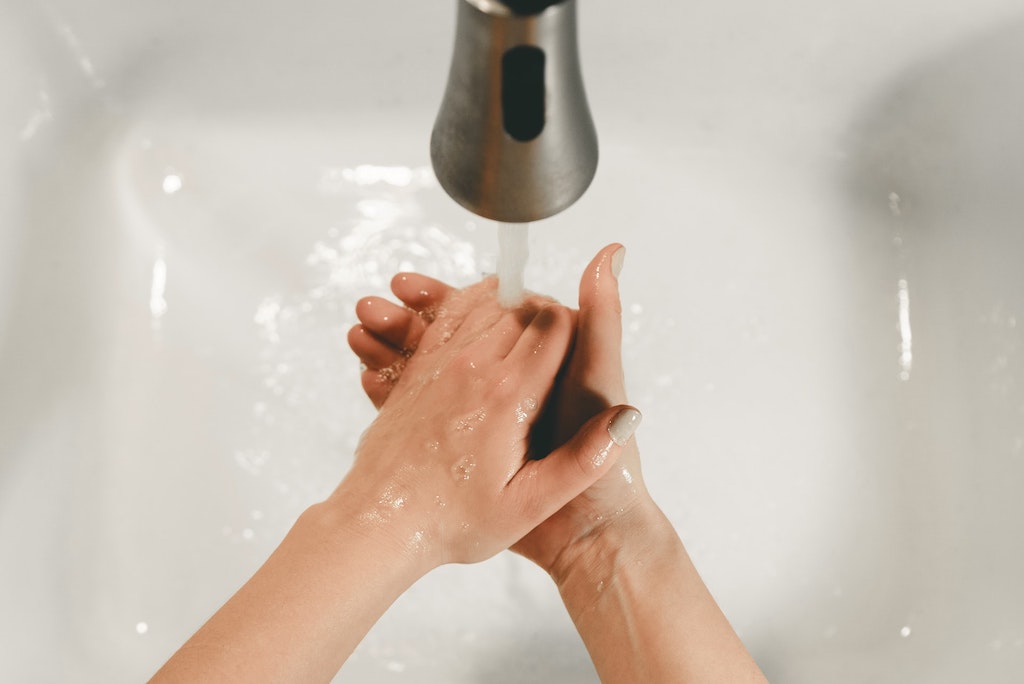It’s Time to Eliminate Water Bills
Americans regularly lose access to water simply because they are poor and unable to pay their bills. Water bills are cruel and unnecessary. We should just get rid of them.

In the United States, people regularly lose access to water simply because they are unable to pay their water bills. (Clay Banks / Unsplash)
In the middle of the nation’s largest spike yet of the COVID-19 pandemic, one of the most crucial resources needed to keep people healthy is clean water for drinking and hand washing. Outside of the pandemic, water is the most basic necessity of life, without which human life couldn’t exist. But in the United States, people regularly lose access to water simply because they are poor and unable to pay their water bills.
Astonishingly, by some estimates, more than 2 million people in the United States do not have running water and sanitation in their homes. Water utilities shut off water access to about one out of every twenty people, or close to 15 million, every year for nonpayment (unsurprisingly affecting racial minorities more than others). This barbaric practice has likely killed tens of thousands of people during the COVID-19 pandemic alone. In the wealthiest country in the world, it doesn’t have to be this way.
Throughout the pandemic, we’ve caught glimpses of alternatives. Though the federal government declined to pass a national moratorium on water shutoffs, some states and cities passed laws to prevent utility shutoffs during the pandemic. Now, as the Omicron variant threatens to overwhelm the failing US medical system, these moratoriums are expiring — and utilities are threatening to again deny people water.
Even before the pandemic, water was too expensive for many poor people to afford, so passing a new moratorium on water shutoffs or even canceling the debt of people behind on their bills would only be a partial and temporary measure. In New Orleans, more than 75 percent of low-income residents have water bills that industry analysts say are unaffordable. In order to ensure that the greatest number of people possible always have water to drink and to bathe, governments must permanently ensure that nonpayment of water bills can never lead to shutoffs.
While the federal government has created a temporary low-income water assistance program modeled on the Low Income Home Energy Assistance Program (LIHEAP), governments interested in guaranteeing clean water should be wary of means-tested programs. LIHEAP has one of the lowest participation rates of any low-income assistance program because of chronic underfunding and difficult paperwork requirements designed to keep people out of the program.
My new paper “Water for All,” published by the People’s Policy Project, argues that the best solution to this problem is to eliminate residential water bills and fund water utilities entirely through taxes. Water utilities already rely heavily on funding from federal, state, and local governments to build and maintain water infrastructure. They collect user fees through water bills to help cover the rest of their expenses.
Any level of government could simply choose to turn the knob on public funding all the way up while turning the knob on water bills down to zero. Not only would this guarantee that income would no longer be a barrier to water service, it would eliminate the hassle of paying a monthly water bill for everyone.
The most frequent objection to eliminating water bills is that rates and user fees help deter overconsumption of water. This concern is misguided at best. Private households account for just 8 percent of the total water usage in the United States. The rest is used by agriculture and heavy industry.
Water demand also tends to be inelastic, meaning that rates have little effect on how much water a household uses. No matter how much water costs, people still need it to drink, cook, bathe, and clean their homes. And there are better ways to reduce water consumption through fixing leaky pipes, mandating low-flow fixtures, or limiting superfluous uses like lawn watering.
Universal water access is a basic human right that any functioning society should ensure for its citizens, especially during a pandemic. The most equitable way to do this is to eliminate user fees and fund water service entirely through taxation. We’re currently killing poor people by denying them water. It’s time to stop doing that — and make water free and available for everyone.